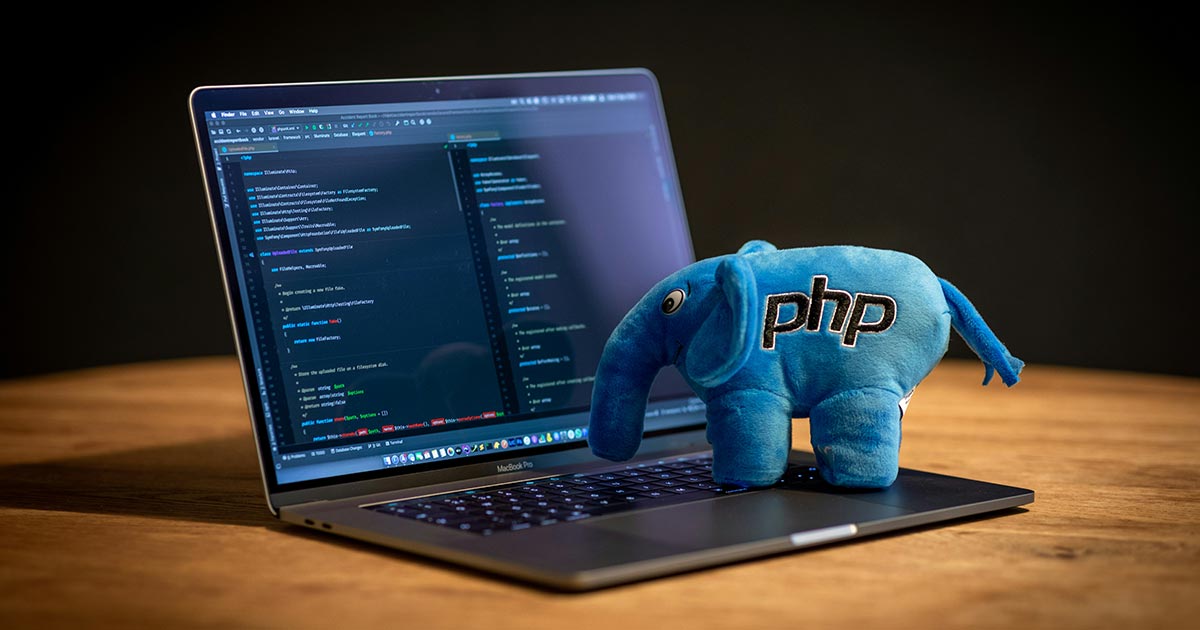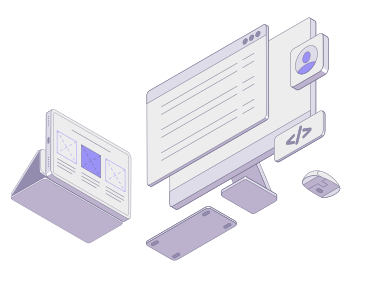




PHP 8.2: What It Is, When to Upgrade, and How to Do It
PHP is a widely-used server-side scripting language, particularly popular for web development. With each new version, PHP brings improvements in performance, security, and features. PHP 8.2, the latest release, continues this trend. At Masthead Technology, we understand the importance of staying up-to-date with the latest technologies. Here’s a comprehensive guide on PHP 8.2, its benefits, and how to upgrade.
What is PHP 8.2?
PHP 8.2 is the latest major release of the PHP programming language. It introduces new features, performance enhancements, and deprecations, aiming to improve the overall developer experience and end-user performance. Some of the standout features include:
New Features:
- Read-Only Properties: This feature allows developers to create properties that cannot be modified once they are set.
- Disjunctive Normal Form (DNF) Types: This adds more flexibility to type declarations by allowing the combination of union and intersection types.
- Constants in Traits: Developers can now define constants in traits, providing more consistency and flexibility in code reuse.
- Deprecations: PHP 8.2 continues to deprecate older, less secure, or less efficient features, encouraging best practices.
Performance Enhancements:
- Improved JIT (Just-In-Time) Compilation: Enhancements to JIT provide better performance, especially for complex applications.
- Optimizations: Various optimizations under the hood improve the speed and efficiency of PHP applications.
Should You Upgrade to PHP 8.2?
Upgrading to PHP 8.2 is generally recommended for most projects due to the enhanced performance, security improvements, and new features. However, the decision to upgrade should consider several factors:
Compatibility:
- Application Compatibility: Ensure your application and all dependencies (like frameworks and libraries) are compatible with PHP 8.2.
- Testing: Thoroughly test your application in a staging environment before upgrading the production environment to avoid unexpected issues.
Support and Security:
- Security Updates: PHP 8.2 includes the latest security patches. Running outdated versions can leave your site vulnerable to security risks.
- Community Support: As new versions are released, older versions may lose community support, making it harder to find solutions for issues.
Performance:
- Enhanced Performance: PHP 8.2 offers improved performance over previous versions, which can lead to faster load times and a better user experience.
Benefits of Upgrading to PHP 8.2
Security Improvements:
PHP 8.2 includes the latest security patches and improvements, reducing the risk of vulnerabilities in your application. Staying current with PHP versions is critical for maintaining a secure environment.
Performance Enhancements:
With JIT compilation and other optimizations, PHP 8.2 can handle more requests per second, reducing server load and improving user experience. Faster execution times mean your applications can serve users more efficiently.
New Features:
The new features in PHP 8.2, such as read-only properties and DNF types, enhance the language’s capabilities, allowing developers to write more robust and maintainable code.
Deprecations:
Deprecations encourage best practices by phasing out outdated features. This leads to cleaner, more efficient codebases and encourages developers to adopt modern coding standards.
How to Upgrade to PHP 8.2
Upgrading to PHP 8.2 involves several steps to ensure a smooth transition:
1. Check Compatibility:
We host all of our sites with WPEngine, which has a “PHP 8.2 checker” which allows us to preview a site using PHP 8.2 before upgrading. If there are any conflicts, issues, or critical errors, we’re able to see them and can diagnose before upgrading.
- Review Codebase: Check your application code for compatibility with PHP 8.2. Look for deprecated features and replace them with updated alternatives.
- Update Dependencies: Ensure all third-party libraries and frameworks used in your application are compatible with PHP 8.2.
2. Backup Your Site:
- Full Backup: Before making any changes, perform a full backup of your website, including files and databases. This ensures you can restore your site if something goes wrong during the upgrade.
3. Update Development Environment:
- Local Testing: Set up a local or staging environment running PHP 8.2. Test your application thoroughly to identify and fix any issues before deploying to production.
4. Update Your Server:
- Choose Method: Depending on your hosting environment, you may need to update PHP through your control panel (like cPanel) or via the command line.
- cPanel: Navigate to the “Select PHP Version” or similar option, and choose PHP 8.2.
- Command Line: On a server with SSH access, you can use package managers like
aptoryumto install PHP 8.2. For example:
sudo apt update
sudo apt install php8.2
5. Test Again:
- Thorough Testing: After updating your server to PHP 8.2, thoroughly test your application again. Ensure that all functionalities work as expected and that there are no new issues.
6. Monitor Performance:
- Performance Monitoring: After upgrading, monitor your site’s performance and error logs. Ensure that the upgrade has positively impacted your site’s performance and that no new issues have arisen.
Common Conflicts and Issues with PHP 8.2 Compatibility
When upgrading a WordPress site from PHP 7.4 to 8.2, we most frequently see compatibility issues with themes and plugins. This may manifest in certain functionalities not working, errors appearing on the front or backend of the website, or in worst-case scenarios, a fatal error. These issues may happen for a few reasons:
- Deprecated Functions: PHP 8.2 removes several functions and features that were deprecated in earlier versions. If your themes or plugins use these deprecated functions, they will break.
- Strict Typing: PHP 8.2 has stricter type checks, which can cause issues if themes or plugins are not updated to comply with these stricter requirements.
- Incompatible Code: Some themes and plugins may contain code that is not compatible with PHP 8.2, leading to fatal errors or warnings.
Troubleshooting PHP 8.2 Compatibility Issues
1. Identify the Issues:
- Review the Report: Examine the detailed report provided by the PHP 8.2 checker. It should highlight specific files, functions, or lines of code that are causing compatibility issues.
- Categorize Issues: Group the issues by theme or plugin to understand where the majority of problems are occurring.
2. Backup Your Site and Copy to Staging:
- Full Backup: Create a full backup of your site, including the database and all files. This ensures you can restore your site if something goes wrong during troubleshooting.
3. Update Themes and Plugins:
- Check for Updates: Ensure all your themes and plugins are updated to their latest versions, as developers may have already addressed compatibility issues.
- Changelog Review: Review the changelogs for themes and plugins to see if recent updates include PHP 8.2 compatibility fixes.
4. Isolate the Problem:
- Deactivate Theme and All Plugins: Deactivate all plugins and switch to a default WordPress theme (like Twenty Twenty-Four).
- Reactivate One by One: Reactivate each plugin one by one and switch back to your theme to identify which one causes the issue. Monitor your site for errors after each activation.
- Use a Staging Environment: Perform these steps on a staging environment to avoid disrupting your live site.
5. Review and Modify Code:
- Access Code Files: For the problematic theme or plugin, access the relevant code files using a code editor or an IDE.
- Check for Deprecated Functions: Look for any deprecated functions or syntax that needs updating. PHP 8.2 documentation can help identify changes from PHP 7.4.
- Update Code: Replace deprecated functions with their updated counterparts, and modify code to comply with PHP 8.2 standards.
6. Test Compatibility:
- Use Compatibility Tools: Utilize tools like PHP Compatibility Checker plugin to re-scan your site and verify if the issues are resolved.
- Manual Testing: Manually test the functionality of the site, especially the parts affected by the theme or plugin updates.
7. Consult Documentation and Support:
- Developer Documentation: Review the documentation for the theme or plugin for any guidance on PHP 8.2 compatibility.
- Support Forums: Visit support forums or contact the developers of the theme or plugin for advice on addressing compatibility issues.
8. Custom Code Adjustments:
- Debugging: Use debugging tools like WP_DEBUG in WordPress to log errors and warnings that might give more insight into the issues.
- Error Logs: Check your server error logs for detailed information about the compatibility issues.
Important Dates
The last version of PHP 7.4.33 reached End of Life (EOL) on 11/28/2022. All releases of version 7.4 no longer receive security or bug fixes and using PHP 7.4 is not recommended.
Conclusion
Upgrading to PHP 8.2 brings significant benefits, including enhanced security, improved performance, and new features that make development more efficient. At Masthead Technology, we ensure your transition to PHP 8.2 is smooth and problem-free, maximizing the benefits for your website or application. Contact us today to learn more about how we can help you upgrade to PHP 8.2 and keep your technology stack current and optimized.
FAQs
What is PHP 8.2? PHP 8.2 is the latest major release of the PHP programming language, featuring new functionalities, performance enhancements, and deprecations.
Why should I upgrade to PHP 8.2? Upgrading to PHP 8.2 ensures your application benefits from the latest security patches, performance improvements, and new features.
How do I know if my application is compatible with PHP 8.2? Review your application code and dependencies for compatibility. Test in a staging environment to identify and fix any issues.
What are the benefits of upgrading to PHP 8.2? Benefits include enhanced security, improved performance, new features for more robust coding, and cleaner codebases due to deprecations.
How can Masthead Technology help with upgrading to PHP 8.2? We provide comprehensive support for upgrading to PHP 8.2, including compatibility checks, testing, and implementation, ensuring a smooth transition for your website or application.

